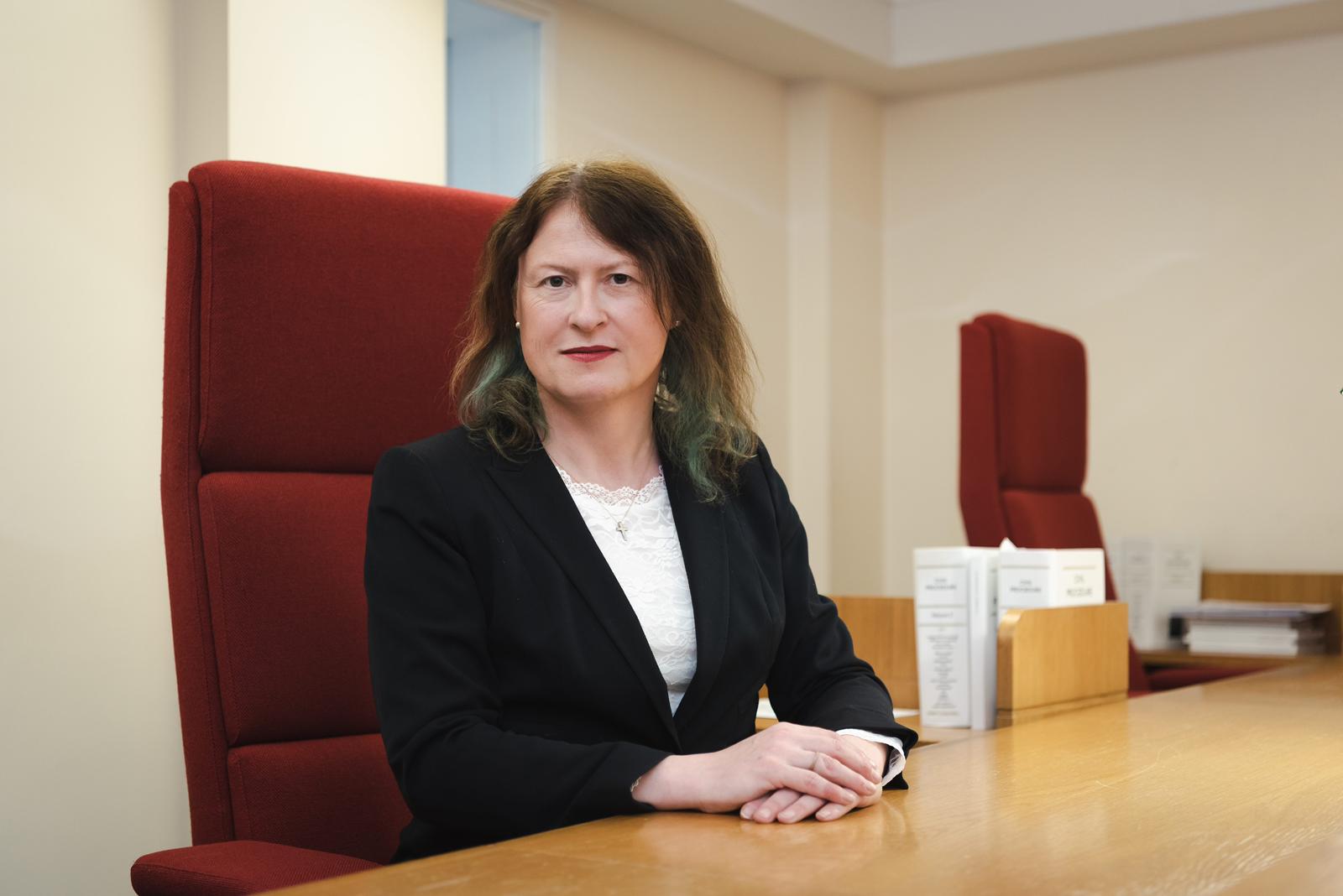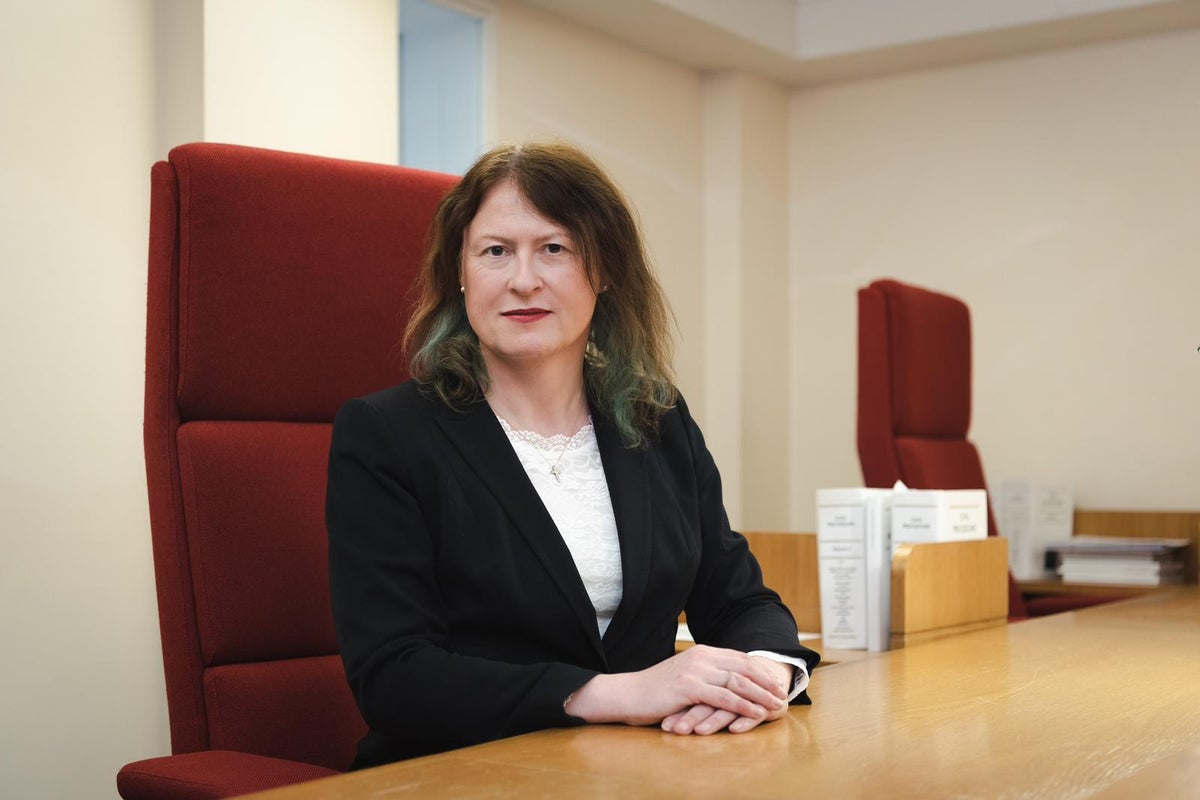Your support helps us to tell the story
From reproductive rights to climate change to Big Tech, The Independent is on the ground when the story is developing. Whether it’s investigating the financials of Elon Musk’s pro-Trump PAC or producing our latest documentary, ‘The A Word’, which shines a light on the American women fighting for reproductive rights, we know how important it is to parse out the facts from the messaging.
At such a critical moment in US history, we need reporters on the ground. Your donation allows us to keep sending journalists to speak to both sides of the story.
The Independent is trusted by Americans across the entire political spectrum. And unlike many other quality news outlets, we choose not to lock Americans out of our reporting and analysis with paywalls. We believe quality journalism should be available to everyone, paid for by those who can afford it.
Your support makes all the difference.Read more
Britain felt like a safer place to be trans in the nineties than it does now, the UK’s first transgender judge has said, raising the alarm over what she sees as a backslide in attitudes towards trans people.
Giving her first interview since lawyers acting on her behalf began the process of taking the government to the European Court of Human Rights over April’s bombshell Supreme Court ruling on biological sex, Dr Victoria McCloud expressed concern that the ruling could impact young trans people who are considering coming out.
“When I came out, things were bizarrely rather better. That was the nineties – we didn’t really have any rights, but there was less of a climate of fear”, Dr McCloud tells The Independent.

open image in gallery
Dr Victoria McCloud is taking the government to the European Court of Human Rights over the Supreme Court’s ruling on biological sex (Andrew Mason)
The retired judge, who has been heralded as a symbol of the modern judiciary’s diversity, said she no longer sees the UK as a “safe place”.
“Since the decision was taken in Scotland, we’ve seen a declaration of genocidal intent made by the Lemkin Institute in relation to the United Kingdom to warn people about what’s going on. We’ve seen concerns from the United Nations and from the Council of Europe”, she says.
In June, the Lemkin Institute for Genocide Prevention and Human Security condemned “recent judicial and governmental developments” in Britain, which they said “attempt to harm transgender and intersex people by stripping them of privacy and segregating them as ‘others.’”
“The Lemkin Institute believes these moves are part of a broader process of erasure. It is not only government action but also the media narrative that has fuelled hostility to and debate about the humanity of trans and intersex people while ignoring their voices”, the body said.
Dr McCloud, who now lives in Ireland after leaving Britain in 2024, says she is “very cautious” when she returns to London – something she is doing more at present as she begins the process of challenging the judgement.
“I’m very cautious. When I come over, I don’t see it as a safe place to go. Lovely cis friends are great at helping me to stay out of risky situations where I might be confronted or even potentially assaulted, because, of course, my face is quite well known.
“I’m particularly at risk of becoming a target by some of the more extreme people from the gender critical ideological movement. And that’s a worry. But I think it’s important that I do carry on, and I do have to come back for things like media interviews and so on occasionally”, she said.
McCloud has set up the Trans Exile Network (TEN) to help other trans people who want to leave the country.
“There are families involved in that who are leaving the UK for the sake of their children. And that’s a really quite a large network, because there’s a lot of worry about the future of children and the messages that they’re getting”, she says.
Lawyers acting on behalf of Dr McCloud, 55, who stood down last year, filed an appeal in the ECHR last week arguing a breach of her rights under article six of the European Convention on Human Rights – the right to a fair and impartial hearing by an independent tribunal.
The judge claims the Supreme Court refused permission for her to intervene on how the case would affect herself and other trans people, saying they didn’t give any reason for it.
“Decisions about us, that fundamentally change our rights, shouldn’t be made without us.
“The case relates fundamentally to fairness. What’s known as Article Six, and it was a situation where nowhere throughout the whole of the case, trans people were heard or represented at all.”
Gender critical campaigners were elated after the ruling in April, hailing it as a victory which would protect the rights of biological women.
But speaking about the impact of the ruling, Dr McCloud said she is worried about how it has affected lesbian women, or other cis women who do not conform to feminine norms because of the new emphasis on subjective appearance.
“I’ve had lots of stories about people who are not trans being abused for being trans. It’s really common, and indeed, not just lesbian women, just anyone who’s maybe a tall woman or whatever.
“It’s leading, I think, to more abuse of non trans people than it is to trans people, because most trans people actually are quite invisible – we go to quite a great length to be invisible, whereas people who are non-trans don’t see the need to do that. They’ve got a perfect right to be what they want.”
.jpeg)
open image in gallery
Dr McCloud said she no longer sees the UK as a “safe place” (Jim Campbell)
Dr McCloud, who retied in 2024, jokes that is it nice to “be the client for a change” – instead, letting her trans led legal team take the lead.
The first case in history to be brought by such a team, Dr McCloud is being represented by Oscar Davies, the UK’s first openly non-binary barrister and Olivia Campbell-Cavendish, the founder and executive director of the Trans Legal Clinic and the first black trans lawyer in the UK.
Her team expect the case to take between 12 and 18 months – but it could take up to seven years if it is not treated as a priority case by the ECHR.
The Supreme Court’s ruling has been praised by gender critical groups as being a victory for women, arguing it will help to protect single sex spaces.
Asked what she would say to cis women with fears about trans people entering single sex spaces, Dr McCloud said trans people were able to access single sex spaces for decades before the ruling, with no reported incidents.
“I do understand the fact that in theory, you could get a man who says, ‘I’m a woman’, and walks in and attacks someone, but they can walk in any anyway. Those aren’t transsexual people. They aren’t trans people, and it’s important to separate the two”, she says.
“In my case, for example, to get a gender recognition certificate, I have a medical diagnosis. I have medical expert reports. A court had to consider my case and evidence – so it’s very tightly regulated.”
Dr McCloud also points out that, statistically, trans people are “much more likely to be assaulted by non-trans people than the other way around”.
“There are very few of us. You’re very unlikely to actually run into one of us and those with gender recognition certificates – there’s only ever been 8,500 of us in a country of 66 million.”
